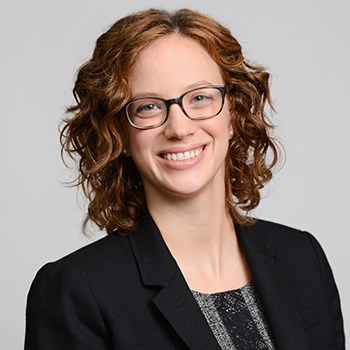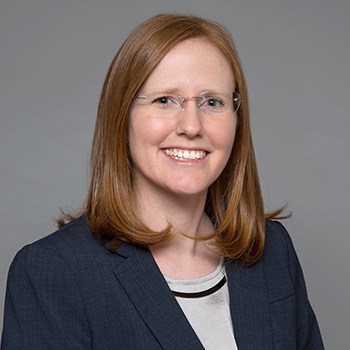Detained Immigrants Seeking Asylum at Border Get Help from Baltimore Attorneys, Law Students
Jean Marbella, Baltimore Sun, December 28, 2018
{snip}
[Alyssa] Domzal and a fellow attorney at Ballard Spahr, Michelle McGeogh, are among hundreds of lawyers across the country who have taken time away from their paid work to travel to remote detention centers and represent undocumented immigrants — helping them seek asylum, for example, or release on bond or parole while awaiting rulings on whether they can stay in the United States or face deportation to the countries they fled.

Alyssa Domzal
Many in the legal profession have been motivated to take on the cause of those seeking entry to the U.S., with some of the country’s most prominent law firms filing suits to challenge Trump’s policies. Lawyers are donating their time, which might otherwise cost paying clients hundreds of dollars an hour, to represent immigrants.
{snip}
{snip} Domzal and four Ballard Spahr attorneys from offices elsewhere in the country continue to work on an asylum application for the man from El Salvador, whom they worked with the week of Oct. 29, that they plan to submit in February. And both she and McGeogh, who volunteered at a facility in Lumpkin, Ga., the week of Nov. 5, want to return in the coming year to further assist detainees.
{snip}
Even working just a single week proved to be an intense experience, the lawyers said.
Domzal recalls seeing hundreds of men, wearing color-coded uniforms of blue for lower-risk detainees with minor or no criminal records and orange for those deemed higher-risk.
{snip}
The pro bono program Domzal and McGeogh worked with, the Southeast Immigrant Freedom Initiative, is run by the Southern Poverty Law Center at three detention centers in Georgia and two in Louisiana. Other groups, such as Catholic Charities and Kids In Need of Defense, or KIND, similarly offer legal aid to immigrants.
{snip}
Because deportation is a civil matter, immigrants do not have a right to an attorney as someone charged in a criminal case does. And even if they or family members have the means to hire a lawyer, the remote location of the detention centers means there are few attorneys in the vicinity available to take such cases.
{snip}

Michelle McGeogh
Emily Neubig, now a third-year student, had been president of the school’s Immigration Law and Policy Association and organized the trip. Students raised money and received assistance from the law school for travel and hotel costs. Much of their work involved interviewing detainees to see whether they might be eligible for bond or parole while their cases were pending, conversations made difficult by the fact that there was only one attorney’s room for in-person meetings and a few booths where they could talk by phone across a partition to their potential clients.
{snip}
Dan Werner, who directs the immigrant initiative, said about 320 attorneys have worked pro bono at the detention centers, and others have worked remotely, answering phone calls for the program. Along with hundreds of other volunteers, such as interpreters, the program is making a “significant dent” in the lack of representation among detainees. Studies have shown, as in other legal proceedings, those who have a lawyer are more likely to receive a favorable outcome.
{snip}
Those who favor stricter immigration laws, however, say that helping a detainee stay in the U.S. can have a cost, particularly if they go on to receive public assistance.
“If the immigrants they help enter the country become a public charge, the taxpayer, not the attorney, picks up the bill,” said Dave Ray, spokesman for the Federation for American Immigration Reform, or FAIR, which works to crack down on illegal immigration. “In short, the attorney has nothing to lose if the immigrant ends up being a bad apple.”
Additionally, he said, helping an immigrant “likely greases the skids for future paid business for the pro-bono attorney, since most immigrants coming to the U.S. are sponsored by a family member already here. Thus, helping an immigrant enter might lay the groundwork for future cases from their long list of extended family members hoping to enter the U.S. as well.”
Andrew R. Arthur, a resident fellow in law and policy for the Center for Immigration Studies, which favors lower levels of immigration and has the same founder as FAIR, sees the pro bono programs as “an effort to push back against policies they don’t like.”
Arthur served eight years as an immigration judge in York, Pa. Judges are required to handle the questioning if an immigrant appears without a lawyer, he said, and serve as a “neutral arbiter” regardless of whether representation is available.
“There are situations that went on a little bit longer than they should have because there was a lawyer involved,” Arthur said. “I ended up ruling the same way I would have.”
{snip}
The backlog of asylum applications alone stood at more than 319,000 at the end of September, according to the U.S. Citizenship and Immigration Services.
Seeking asylum without legal representation almost guarantees a denial, according to Syracuse’s Transactional Records Access Clearinghouse, which tracks federal data. {snip}
McGeogh said the process is stringent. “Regardless of how long you’ve been here and are contributing to society, you may not have a valid legal claim to staying here,” she said.
{snip}















